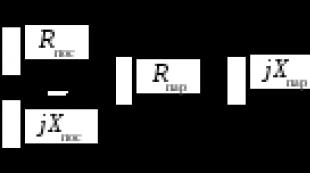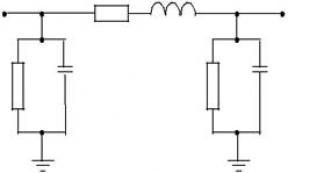Deng Xiaoping's Chinese Reforms. Deng Xiaoping's rise to power
The great architect of Chinese economic reform and modernization, Deng Xiaoping, created an economic miracle in the world's most populous country by firmly directing the communists on the path of capitalism.
Biography of Deng Xiaoping
He was born on August 22, 1904 in Sichuan to a wealthy family. He grew up in a house with 22 rooms, on which a memorial plaque now hangs with the inscription: “A man was born here who saved the country in a time of disaster and is reviving it with all his might. Kudos to him."
At the age of 15, with a group of 80 Chinese students, Deng went to Paris to study. To make ends meet, study had to be combined with work. Xiaoping was both a digger in the mines and a mechanic in a factory Renault, and a waiter, and a fireman.
Paris in the 1920s was marked by increased revolutionary spirit. And more than others, leftist ideas struck young people who came from the countries of Southeast Asia. Vietnamese Ho Chi Minh, Cambodian Pol Pot and Chinese Zhou Enlai returned home as complete revolutionaries.
The same fate befell Deng Xiaoping. In 1921, he joined the Communist Youth League of China, two years later - the Communist Party of China. And quickly moved to the top positions in the European branch of the CCP.
As you know, the then communists - just like the current Americans - wanted to make everyone happy at once and were preparing a world revolution. In Paris, Deng printed proclamations and distributed them to workers in Chinatown. The police drew attention to this, and he had to leave France.
The world revolutionary was welcomed with open arms to the USSR, where, under the name Drozdov, he began studying at the Communist University of the Working People of the East.
Returning to his homeland in 1927, Comrade Deng chose a military career. Naturally, in the territory controlled by the revolutionary Red Army. Under his command, units of the Red Army are fighting against the Kuomintang troops. Dan performs cunning maneuvers, catches the enemy by surprise, uses modern military tactics, pushes the enemy.
The party appreciated his military successes. With the support of Mao Zedong, Comrade Deng is elected CPC secretary in Ruijin County. He serves as the political commissar of the 129th division, the political commissar of the 2nd field army, is a member of the CPC Central Committee, and is appointed first secretary of the Southwestern Bureau of the CPC.
In 1966, Deng Xiaoping formulated: “It doesn't matter if the cat is black or white. If she knows how to catch mice, then this is good cat". But this formula only took off in the late 1970s.
Let a hundred flowers bloom
In 1949, the Chinese revolution finally won, and the PRC was formed. Having shown himself to be a talented organizer in one of the largest administrative regions - the Southwestern, which included the provinces of Guizhou, Yunnan, Xikang and Sichuan, Deng achieved a transfer to Beijing. He was involved in the work on the formation of the political and economic foundations of the new state as a member of the commission for the preparation of the constitution of the PRC. Soon Deng holds the posts of Secretary General of the Central Election Commission for the People's Representative Council, Vice Chairman of the Central Military Commission, Deputy Premier of the State Council Zhou Enlai. And finally, in May 1954, he was elected general secretary CPC Central Committee.
From the very first days of the foundation of the PRC, Mao, who usurped the status of the leader, the Great Helmsman, built the state in the image and likeness of the Stalinist USSR. Naturally, repressions were widely used against both wealthy Chinese and political opponents, who were declared agents of the Japanese bourgeoisie and Kuomintang spies.
In 1956, when the new leader of the USSR, Nikita Khrushchev, announced a departure from the Stalinist model of socialism, Zhou Enlai and Deng Xiaoping also proposed reforms. Mao, after hesitating, nevertheless sanctioned the report of Deng Xiaoping at the VIII Congress of the CPC in 1956, in which the Secretary General spoke about the division of powers between party and administrative bodies, about the perniciousness of transforming constitutionally democratic state mechanisms into bureaucratic ones, about the need to democratize public life.
In 1957, Mao put forward the slogan "Let a hundred flowers bloom, let a hundred schools compete", calling on the country to debate. But what he heard horrified him. The Chinese enthusiastically began to scold the CCP's policies for corruption, violence, and incompetence. A year later, there was no question of any reform. Repression unfolded. However, neither Deng Xiaoping nor Zhou Mao touched.
Highly cultured revolution
And a year later, the Great Leap Forward hit China. Mao decided to exceed Stalin's plans for the collectivization and industrialization of the country a hundredfold. “Three years of hard work and a hundred years of happiness,” was the slogan he proclaimed. The result is a terrible famine, which claimed, according to various estimates, from 10 to 30 million lives.
Liu Shaoqi and Deng Xiaoping were tasked with saving the economy. They managed to partially decollectivize and stop the administrative chaos. Private property returned to agriculture, trade was revived.
In 1966, Deng Xiaoping formulated: “It doesn't matter if the cat is black or white. If she knows how to catch mice, then this is a good cat. But this formula only took off in the late 1970s. And then, in 1966, Mao put forward the slogan "Fire at headquarters!". The "Great Proletarian Cultural Revolution" began.
Liu Shaoqi was arrested and died in prison under unclear circumstances. His young wife was beaten to death by the Red Guards and thrown out of the window. Deng Xiaoping was treated more gently. The General Secretary of the CPC was sent with his family to a remote county in Jiangxi Province, where he worked in a tractor factory until 1973. The son was thrown out of the window of the third floor, and he remained disabled for the rest of his life.
The economy grew simply at a fantastic rate - up to 15% per year! I even had to slow down a bit.
Hostage of the Gang of Four
When Premier Zhou Enlai found out that he was terminally ill and had only two years left to live, he convinced Mao that there was no better successor than the disgraced Deng. Mao reluctantly appoints Deng Xiaoping Vice Premier.
He carefully, without making sudden movements, so as not to be repressed again, begins to rectify the economic situation. Despite his defiant loyalty to Mao's policies, Deng Xiaoping was forced in 1975 to publicly self-criticize and admit his "mistakes." Clouds are gathering after the death in 1976 of Zhou Enlai, who supported a fellow reformer. The radical left-wing faction of the CCP, the same "gang of four" led by the wife of the Great Pilot, who usurped almost unlimited party power, declares Deng Xiaoping a "counter-revolutionary element" preparing mass riots in the country. He is thrown behind bars, and the final reprisal seems inevitable.
However, Mao dies in September, and in October the Gang of Four is arrested. And Deng Xiaoping triumphantly returns to power. He occupies by no means the highest post, which is Mao's protege Hua Guofeng. Deng is elected chairman of the National Committee of the People's Political Consultative Council, a body that has no authority to decide the country's key issues. But, having enlisted the support of like-minded people in the CPC Central Committee, Deng is gradually increasing his power - First Vice Premier, Deputy Chairman of the CPC Central Committee, Deputy Chairman of the Military Council, Chief of the General Staff.
And at the end of 1977, he already had enough power to achieve the adoption of a program document condemning the cultural revolution at the plenum of the CPC Central Committee. And next year, he launches economic reforms that eventually turned the PRC into the current powerful power, dictating its terms on the world market.
Big Leap-2
Deng proclaimed the principle of "four modernizations", according to which the entire economy was divided into four sectors: the military-industrial complex, industrial production, agriculture and science. The reforms were based on a theoretical platform: a country that is at the first stage of socialism will build “socialism with Chinese characteristics”, which is characterized by a “socialist market economy”.
Deng Xiaoping outlined several stages of reform. However, there was no rigid scheme. “When crossing the river, we feel the stones,” said Dan. The reforms were developed taking into account the pressing problems and the circumstances arising from their solution. And they relied not only on the decisions of the Beijing sages, but also took into account the initiative from below. Many methods of effective housekeeping were developed and implemented by the provincial leaders. If the method proved its effectiveness in practice, it was introduced in larger regions, and then used on a national scale.
At the first stage, until 1984, the most radical changes affected agriculture. The communes were replaced by a “household contract”, which allowed each family to work for themselves, and not immediately for all. But private ownership of land was not introduced: the land remained collective, assigned to rural communities.
In industrial enterprises, directors were given greater freedom in decision-making. Successful plants and factories were encouraged not only morally, as before, but also financially. expanded private sector- First of all, in the light industry, which now clothes and shoes half of the globe.

At the second stage of reforms, in addition to undoubted economic successes, negative processes also appeared: corruption, inflation, stratification of society, and an increase in crime. That is, "socialism with a Chinese face" acquired the features of capitalism in the period of initial accumulation. Deng Xiaoping had to skillfully maneuver to prevent reform opponents from the left wing of the CCP from returning the country to the past.
Large enterprises have already passed into private ownership. industrial enterprises, mines, oil fields. A flood of foreign investment poured in. Created special economic zones. High technologies have come to the country.
The economy grew simply at a fantastic rate - up to 15% per year! The reformers led by Deng Xiaoping even had to slow down a bit in order to prevent "overheating". Deng made significant efforts in the international arena so that the PRC would cease to be a "communist scarecrow", so that the country would be accepted into the noble family of so-called "civilized countries". He reached agreements with Great Britain and Portugal on the return of Hong Kong and Macau to the PRC.
A middle class quickly formed in China. And he wanted political freedom. In 1989, large-scale actions against the CCP's omnipotence unfolded in the capital's Tiananmen Square. Deng Xiaoping perceived this as a real threat to the existence of the state, since the European socialist camp was literally bursting at the seams. On May 20, tanks moved into the square. Resistance was quickly crushed. According to various estimates, from 400 to 2500 people died.
Deng resigned as chairman of the Central Military Commission. And in 1992 he left the political scene forever. However, six months earlier, he made his famous "southern tour", visiting Guangzhou, Shenzhen, Zhuhai and Shanghai. Like a cult rock musician, he spoke to huge audiences, speaking about the need for economic transformation and criticizing opponents of economic reform and opening up. And then he published a series of high-profile articles in the national newspaper. His ideas received nationwide support. And the then Chinese President Jiang Zemin, who had previously hesitated about the course of the country, completely went over to the side of the father of reforms.
Deng Xiaoping passed away on February 19, 1997 at the age of 92. But his cause lives on and wins. In this case, this wording is not a propaganda cliché at all. So everything really is, which is easy to verify by looking at the economic indicators of China.
By the end of 1976, the People's Republic of China found itself in a state of deep socio-political and economic crisis. The cause of the crisis was the militaristic great-power course of Mao Zedong and his supporters, the voluntaristic policy of the "Great Leap Forward", the Maoist "cultural revolution". According to the Chinese press, 1966-1976. became a "lost decade", which threw the country back, putting the national economy on the brink of collapse.
The country's economy was almost completely destroyed, hundreds of thousands of people were below the poverty line. The "class struggle" declared during the "cultural revolution" further exacerbated the accumulated socio-political and economic contradictions. The social policy of Mao Zedong led to a split in society - a phenomenon that is directly opposite to the strengthening of political and moral unity, which is characteristic of a socialist society.
The leadership that came to power after the death of Mao Zedong (September 9, 1976), headed by Chairman of the Central Committee of the CPC and Premier of the State Council of the PRC Hua Guofeng, an adherent of the "cultural revolution", announced the continuation of the course of Mao Zedong. The process of reforming the Maoist leadership, which became necessary, was accompanied by a struggle between groups for predominance in the party and state apparatus. The leading positions were gradually occupied by the Maoist-pragmatic group headed by Deng Xiaoping, whose rehabilitation took place in June 1977 (a year after his second dismissal) at the Third Plenum of the tenth convocation of the CPC Central Committee. Deng Xiaoping was again reinstated in all posts - Vice Chairman of the CPC Central Committee, Vice Chairman of the Military Council and Chief of the General Staff of the PLA, Deputy Premier of the State Council of the People's Republic of China. Hua Guofeng took over as Chairman of the CPC Central Committee. However, already in the late 70s, Deng Xiaoping became the leader of the party and the country.
The basis for the practical development of Deng Xiaoping's reformist ideas was the course of the "four modernizations" approved in the mid-70s, which set the goal of transforming four areas - agriculture, industry, the army, science and technology. The formula of "four modernizations" reflects the material content of the reform. If we talk about the ideological and political line, then its essence is represented by "four basic principles": the socialist path of development, the democratic dictatorship of the people, the leadership of the Communist Party, Marxism-Leninism, the ideas of Mao Zedong.
At the III Plenum of the Central Committee of the CPC of the eleventh convocation, held on December 18-22, 1978, on the initiative of Deng Xiaoping and his associates, a historic decision was made to abandon the theory of "continuation of the revolution under the dictatorship of the proletariat" and the political orientation of waging "class struggle" as the main task , and shift the center of gravity of party work to the implementation of modernization. According to this, a new policy of "reform and opening up" of the PRC was announced and approved.
Thus, reforms and an open policy were declared to be the main means of modernization. The reforms are aimed at bringing production relations in line with the tasks of developing the productive forces so that production relations do not become an inhibitory factor for the development of the country. And an open policy is designed to include the PRC in the process of globalization of the economy and other spheres of life of the human community, actively attract foreign capital, use the achievements of science and technology, and managerial experience in order to ultimately increase China's global competitiveness.
The reform process was characterized by Deng Xiaoping as the "second revolution" after 1949, but not a revolution aimed at demolishing the old superstructure and against any social class, but a revolution in the sense of "the revolutionary renewal of socialism on its own basis through self-improvement".
The goal of socialist modernization is to bring China by the middle of the 21st century to the level of moderately developed countries in terms of production per capita and, on this basis, to achieve the general well-being of its citizens. The path of modernization is the accelerated growth of economic potential, its qualitative renewal and increase in efficiency based on the development of scientific and technical potential, based on the fact that science is the "main productive force."
From the very beginning of the development of the country's modernization strategy, Deng Xiaoping abandoned dogmatic adherence to the canons of socialist construction adopted in the USSR and "led a search for the construction of his own model of socialism with Chinese characteristics." The essence of "national specificity" was seen by the politician-reformer in the historically established and objectively determined socio-economic backwardness of the country, the shortage of arable land and other necessary resources to ensure normal conditions life and development of a country with a billion people. Taking into account the fact that overcoming China's backwardness will take a long time, a fundamental theoretical position was adopted that the PRC is at the initial stage of socialism, which will last until the middle of the 21st century.
Thus, in order to ensure the main internal condition for the normal course of reforms - political stability, political life The country was built in accordance with the "four basic principles" put forward by Deng Xiaoping: follow the socialist path, adhere to the dictatorship of the proletariat, adhere to the leadership of the CPC, Marxism-Leninism, and the ideas of Mao Zedong. No deviations from this line in the direction of political and ideological liberalization were allowed.
However, Deng Xiaoping managed to start a full-scale implementation of the modernization program only after creating the necessary political conditions for this. Economic reform, according to Deng Xiaoping's theory, is impossible without reform political system.
A special place in the reform of the political system, and in general in the process of modernization, was given to the ruling party as a guarantor of socio-political stability, without which it seemed impossible to successfully pursue a course towards socialist modernization. In this regard, issues of party building, strengthening party discipline and strengthening internal control of the party were constantly in the center of attention of the leadership of the CPC. The greatest importance in the reform of the political system was given to the development of a comprehensive legislative and regulatory framework and its implementation, the transformation of China into a modern legal state, "ruled on the basis of law."
The content of the reform of the political system, aimed at the development of democratization, was seen in the development and strengthening of the existing system of representative bodies of power (assemblies of people's representatives, etc.), the expansion of their controlling functions and democratic principles in their activities, the simplification and reduction of the administrative apparatus, a clear division powers between party and administrative bodies, between the center and the localities, and so on.
In Deng Xiaoping's theory of modernization, the human factor was of paramount importance. The program of educating the "new man" has been introduced since the beginning of the 80s as part of the course towards the creation of a socialist spiritual culture, covering the entire spiritual sphere of the life of Chinese society - ideology, culture itself, morality, law - and aimed at the formation of a modern cultural and civilizational environment, without which modernization is unthinkable.
In the process of developing China's modernization strategy, Deng Xiaoping revised the previous concept of development modern world, which boiled down to the fact that its basis was World War and revolution. According to the theory of Deng Xiaoping, the main trends that determine the state of modern international relations, are peace and development, the preservation of which is an external guarantee of the successful implementation of the modernization of the PRC. Finally, an integral part of Deng Xiaoping's modernization program is the completion of the country's unification according to the "one state, two systems" formula, which provides for the preservation of the existing capitalist system in Hong Kong, Macao, and Taiwan after their reunification with the PRC.
Comrade Deng Xiaoping, a veteran of the revolution and a leading political figure in the PRC, was named "the chief architect of Chinese reforms" at the opening of the 13th Congress of the Communist Party of China on October 25, 1987.
During an inspection trip to southern China in early 1992, Deng Xiaoping draws conclusions about the need to further accelerate reform and development based on the expansion of the scope of market relations and proposes three criteria for determining the effectiveness of ongoing reforms and open policies: do the reforms contribute to the development of productive forces, do they contribute to strengthening the integrated state power, do they contribute to raising the living standards of the people.
Developing the reform, the leadership of the People's Republic of China, headed by Deng Xiaoping, made a theoretical "breakthrough" at the III Plenum of the CPC Central Committee of the fourteenth convocation in 1993, announcing the unification market economy with socialism.
At the 15th Congress of the CPC in 1997, the Party Rules included a provision on the leading role of the "theory of Deng Xiaoping" in the initial stage of socialism. It is declared a new stage in the development of Marxism in China, the second theoretical achievement after the "ideas of Mao Zedong", "the continuation and development of the ideas of Mao Zedong", a scientific system for building socialism with Chinese characteristics.
The current leaders of the PRC not only emphasize their adherence to the ideas of the "architect of reforms", but also develop them as new problems arise. The new leaders of China are trying to make the country's development more comprehensive and coordinated, without abandoning the policy of "reform and opening up" outlined by Deng Xiaoping.
Summing up the above, it is necessary to note the following: the Maoist "cultural revolution" cost the country dearly and brought the PRC's economy to a crisis state. The experiments of Mao Zedong clearly demonstrated that the cruel (Stalinist at its core) model of socialist construction does not produce the desired results and is destructive. Returning to power in 1977, Deng Xiaoping embarked on a policy of modernizing China. A turning point in the history of the PRC was the holding of the 3rd Plenum of the 11th CPC Central Committee in December 1978, which became the starting point for the process of modernizing the country. The most important merit of Deng Xiaoping is that the policy pursued by him was entirely subordinated to the task of building up the comprehensive state power and improving the life of the people.
A Chinese statesman often referred to as "The Great Architect of Chinese Reforms".
In his youth he studied in France, lived in the USSR.
In the 50s of the XX century Deng Xiaoping and Mao Zedong argued about China's development strategy.
Malevich I.A., Asian triangle of dragons, M., "Ast"; Minsk, Harvest, 2006, p. 75-77.
“The main reason for the fantastically rapid development of Singapore under Lee Kuan Yew, like Prussia Frederick the Great, was a matter of the physical survival of the country, both in the face of Malaysia and Indonesia and in the face of the sabotage and propaganda machine of the Chinese Communists. And now 20 years have passed, and in 1978, after the death Mao Deng Xiaoping came to Singapore. He couldn't come to Hong Kong, it was a British colony, he couldn't come to Taiwan, it was an enemy. He came to Singapore. And his reaction was very simple: we can do it too! Just after returning Deng Xiaoping from Singapore in China, reforms began, which, in fact, are an adaptation of the principles Lee Kuan Yew to the administration of a vast territorial state.
Deng Xiaoping (1904-1997), Chinese statesman.
He studied in France (since 1920) and the USSR (1925-1926), where he became interested in communist ideas. Returning to China, he participated in the anti-Japanese and civil wars in China (1927-1949), was a political commissar of the Chinese Red Army, and in 1945 became secretary of the CPC. After the victory of the Communists (1952), Deng Xiaoping was appointed vice premier, and in 1954 - general secretary of the CPC.
Mao Zedong and Deng Xiaoping disagreed on how China's economy should develop. Mao believed that rapid economic growth could be achieved by mobilizing the efforts of the working masses with minimal involvement modern technology and the abandonment of private enterprise. This concept, implemented in 1958, led to an economic disaster.
Deng Xiaoping opposed the Cultural Revolution (1966-1969). He and his supporters became victims of repression. In 1973, Deng Xiaoping was rehabilitated and appointed Prime Minister, and in 1975 - Vice Chairman of the CPC Central Committee, member of the Politburo and Chief of the General Staff. In January of the following year, he was removed from power, but after the death of Mao Zedong (September 1976), he regained all positions in the leadership and initiated economic reforms in China.
In agriculture, the system of "people's communes" was abolished; in industry, market reforms and the formation of special economic zones led to an increase in the production and export of consumer goods, and foreign investment began to be actively attracted. At the same time, Deng Xiaoping refused to take even small steps to expand democracy in society. He authorized the brutal suppression of the riots in Beijing (1989): more than a thousand people died in Tiananmen Square, tens of thousands were arrested.
Name: Deng Xiaoping (Deng Xiansheng)
State: China
Field of activity: Politics
Greatest Achievement: Xiaoping's reforms helped China out of the deepest crisis.
China gave the world (and itself first of all) famous people- patriots who sought to improve the position of the country not only within, but also in the international political arena. Knowing all the ins and outs of China's problems, these people tried to create a new China, moving away from the old postulates and traditions. Whether it succeeded or not, history will tell. but there is one name that is still revered in China with awe. We are talking about Deng Xiaoping.
Deng Xiaoping, the Chinese communist leader, was the most powerful figure in the People's Republic of China from the late 1970s until his death in 1997. He abandoned many orthodox communist doctrines and tried to incorporate elements of free enterprise and other reforms into the Chinese economy.
early years
The future reformer was born on August 22, 1904 in the family of a wealthy landowner. His real name was Deng Xiansheng (during his student years, he received the nickname Xiaoping - that was the name of a bottle of vodka that could not be properly packed in a bag). In 1908, the mother dies, and four children remain in the care of their father. Soon he married a second time, and the future leader has an excellent relationship with his stepmother. At the age of 16, Dan travels to France with 80 high school students to look at Western life and get a better education. Then Dan started working - as a waiter, fireman, miner. But the most important thing was different - in France, Xiaoping got carried away, which he brought to China.
Upon his return, Deng became the leading political and military organizer in Jiangxi, an autonomous communist enclave in southwest China that was established in 1931. After the Communists were overthrown by Nationalist-led forces in 1934, Deng took part in the Chinese Communists' difficult long march to a new base in northwest Shaanxi Province. From 1937 to 1945, he served as commissar of the Communist Division, then was appointed secretary of the Central Committee of the Chinese Communist Party (CCP). Deng also served as chief commissar of the Communist Second Field Army during civil war in China. After the communist takeover of China in 1949, he became the regional leader of the Southwest China Party. In 1952 he was summoned to Beijing and became Vice Premier. Climbing up quickly career ladder, he became general secretary of the CPC in 1954 and a member of the ruling political bureau in 1955.
From the mid-1950s, Deng was a major politician in both foreign and domestic affairs. However, his reign as general secretary came at a very difficult time - Mao's "Great Leap Forward", which resulted in the death of more than 30 million people. Deng enthusiastically began to rake up what Zedong had done. The famine ended, Xiaoping was more loved and respected by the people than Mao. This the Chinese leader could not bear. When the Cultural Revolution took place in China in 1966, Xiaoping was one of the first people to come under hot hand Mao. He was deprived of high party and state posts somewhere in 1967-69, after which he disappeared from public view and spent several years under investigation, then worked at a factory.
However, in 1973, Deng was reinstated at the request of Prime Minister Zhou Enlai and became his deputy, and in 1975 chief of the General Staff. As the effective head of government during the months leading up to Zhou's death, he was seen as a likely successor to Enlai. However, after Zhou's death in January 1976, Deng was again removed from power by Mao's people. It was only after Zedong's death in September 1976 and the ensuing fall in power of the Gang of Four that Deng was rehabilitated, this time with the consent of Hua Guofeng, Mao's chosen successor in China's leadership.
By July 1977, Deng was back in his high positions. He soon began fighting Hua for control of the party and government. Xiaoping's superior political skills and massive popular support soon led Hua to resign and give his post to Deng's protégé. Xiaoping now had full power in his hands.
Deng Xiaoping's reforms
From that moment on, Deng began to implement his own policy economic development China. Acting on the basis of compromise and persuasion, Deng designed important reforms in virtually every aspect of China's political, economic, and social life. His most important social reform was the establishment of the world's most stringent family planning program, the one-child policy, to control China's growing population. Under the new rules, a family could have only one child, the second was subject to a large fine and even prison (now the country is reaping the benefits of this policy - China has a large number of men and a shortage of women - if the mother found out that she would have a girl, she went for an abortion.
The birth of an heir was welcomed in the family). He established decentralized economic management and rational and flexible long-term planning to achieve efficient and controlled economic growth. Chinese peasants were given individual control and responsibility for their production and profits, leading to a significant increase in agricultural production within a few years of its start in 1981. Deng emphasized individual responsibility in economic decision making, material incentives as a reward for industry and initiative, and the formation of skilled, well-educated technicians and managers to lead China's development. He freed many industrial enterprises from the control and oversight of the central government and gave factory managers the power to determine the level of production and make a profit for their enterprises. In foreign affairs, Deng strengthened China's trade and cultural ties with the West and opened up Chinese enterprises to foreign investment.
Deng faced a critical test of his leadership in April-June 1989. In 1987, Zhao Ziyang replaced the overly liberal Hua Guofeng as general secretary of the CCP (both of whom were proteges of Deng). Hua's death in April 1989 sparked a series of student demonstrations in Beijing's Tiananmen Square demanding more political freedom and a more democratic government. After some hesitation, Deng supported those in the CCP leadership who advocated the use of force to suppress the protesters, and in June the army crushed demonstrations in the square (there were many casualties). Zhao was removed from power. By that time, Deng had no official post in the communist leadership, but he still retained the highest authority in the party. Although his direct involvement in government declined in the 1990s, he retained his influence until his death.
Deng Xiaoping restored China's internal stability and economic growth after the disastrous excesses of the Cultural Revolution. Under his leadership, China acquired a dynamically developing economy, improved living standards, significantly expanded personal and cultural freedoms, and strengthened ties with the world economy. Deng also left in place a slightly authoritarian government that remained committed to the CCP's one-party rule even as it relied on free market mechanisms to transform China into a developed country.
China Deng Xiaoping
In the 1990s, Dan was ill a lot, he developed Parkinson's disease. The former economic giant died on February 19, 1997 from a lung infection. He was no longer in power, but the people still loved and revered him, because he raised China from the very bottom to the surface.









